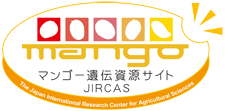
The JIRCAS Mango Genetic Resources Site has been open to the public since 2017, providing information on mango genetic resources to researchers, producers, and consumers in Japan. In response to recent many visits and inquiries from overseas, we have reorganized the information and launched an English version of the site with content specifically for overseas users.
- Place
-
Obihiro University of Agriculture and Veterinary Medicine / Online Streaming (Zoom)
The Field Management Section is responsible for the preparation of the field where researchers conduct their studies including plowing the fields with tractors and other equipment, spraying pesticides based on the condition of the crops, and spraying the entire area evenly, all tasks that we rarely do in our daily lives. However, no one can do it well from the beginning. As you reflect on your work each day and look for ways to improve and make it better, you will find your own way.
I am sure that there will be more difficulties and things that will not go well in your job hunting activities, but I hope that you will do your best in your own way by making use of self-improvements. Believe in yourself and do your best. I’m rooting for you and I would be happy if we could work together at JIRCAS.
